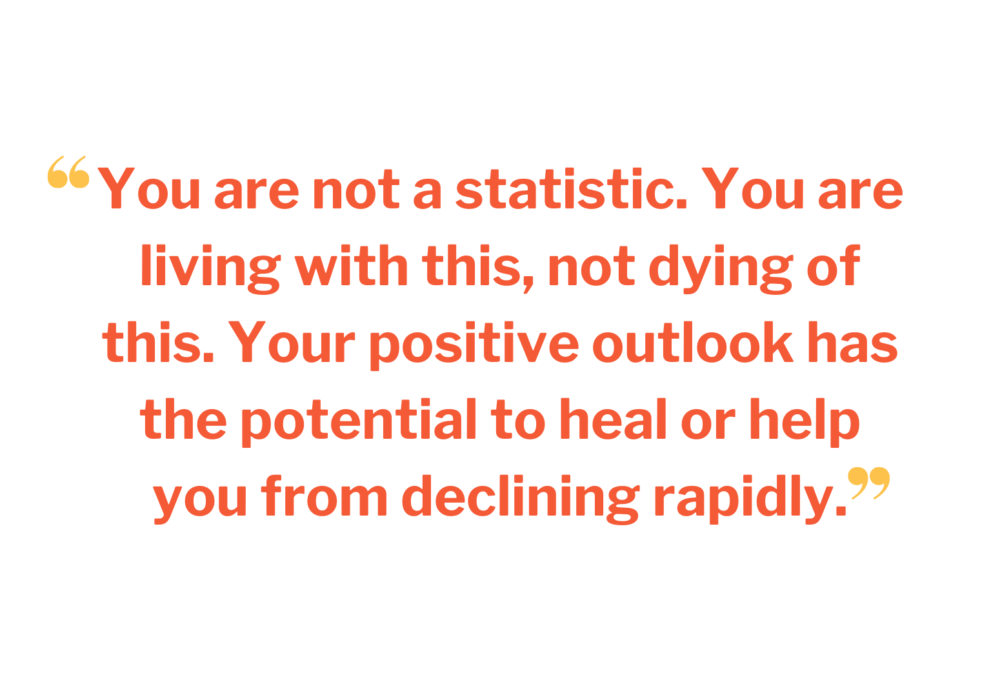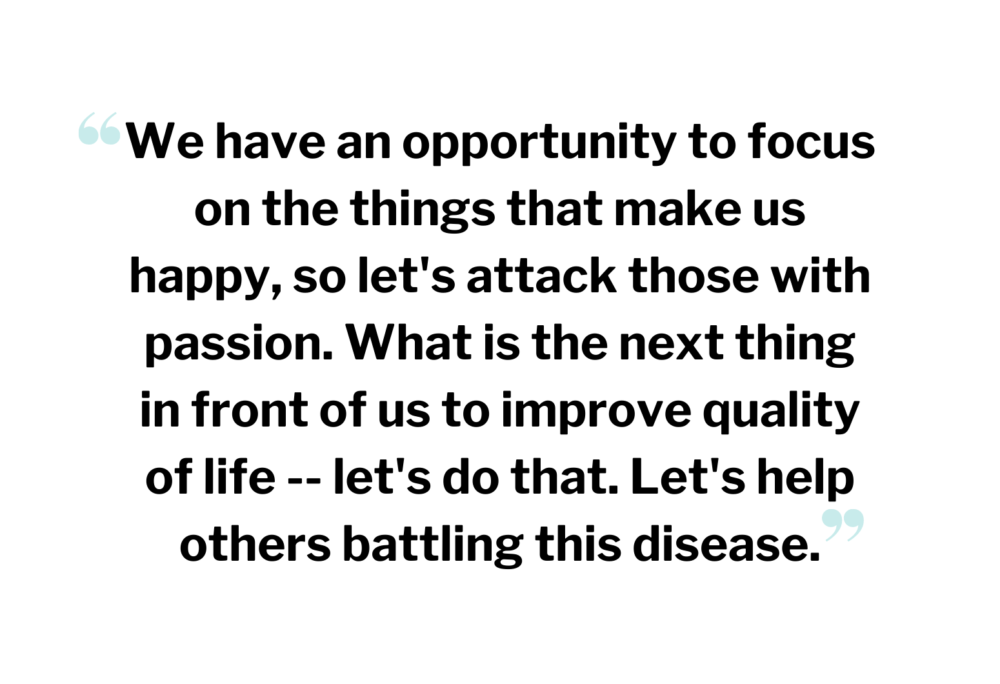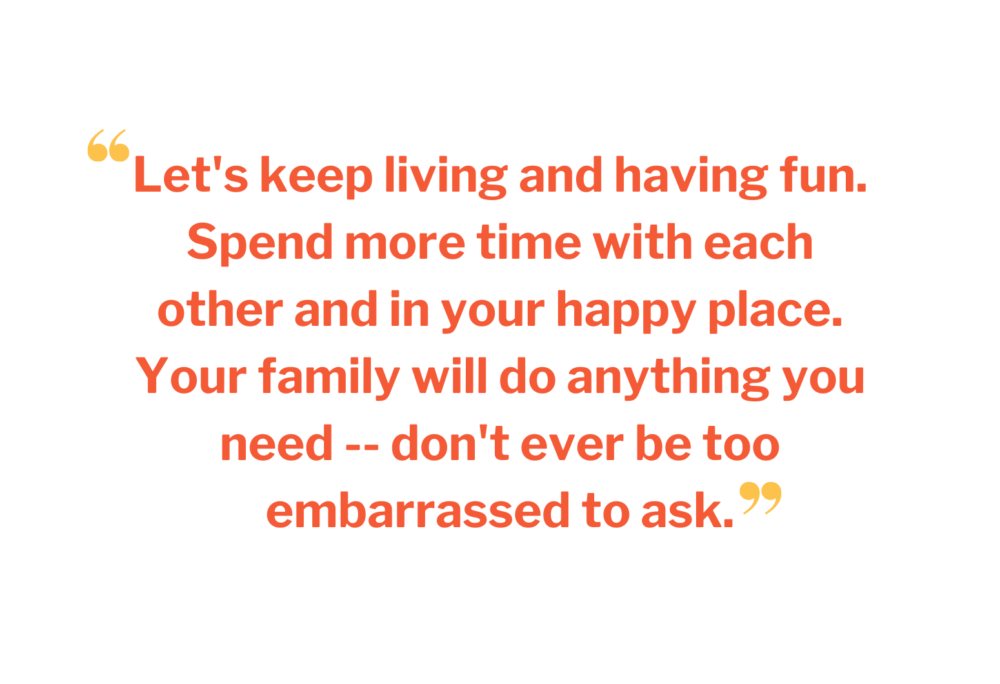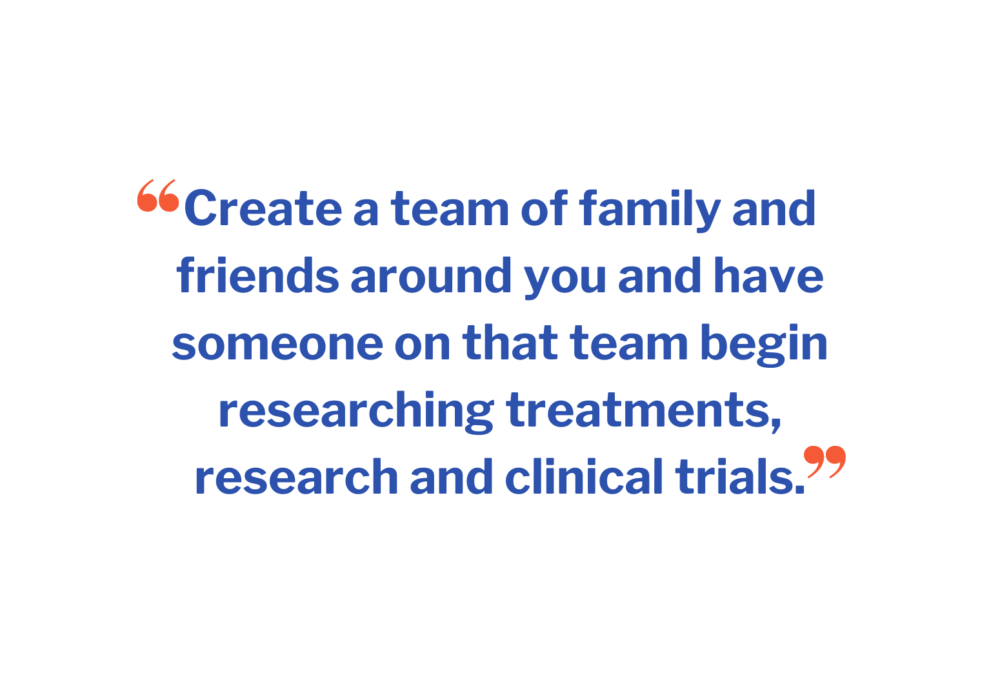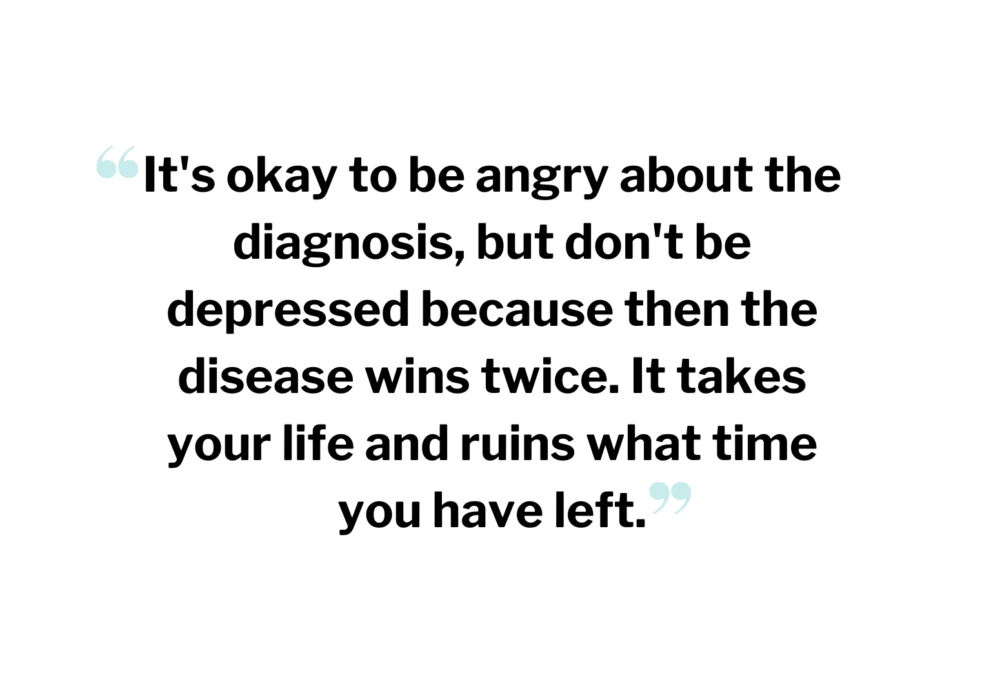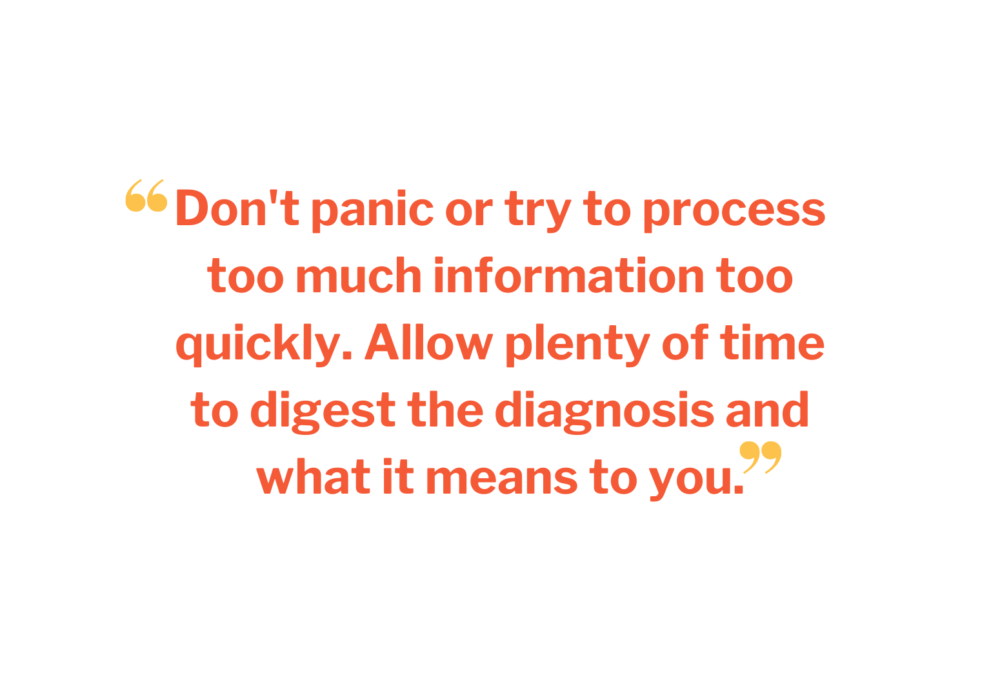When you are a caregiver to a spouse or partner with ALS, the impact on your relationship can feel especially difficult. ALS is something you and your partner likely never thought you would have to experience together. So what does this mean for you, your relationship and the dreams you were talking about just yesterday? Adapt: you, your relationship and your shared dreams.
For most couples, going from mutual reliance to patient and caregiver results in a shift in dynamics that is felt on both sides. The physical side effects of ALS may also change how you’re able to communicate and interact with your significant other, whether in public or during intimate moments (Atkins, et al, 2009). While these experiences can sometimes feel disheartening or isolating, they may also bring humor and hope. Remember: You are not alone in your experience. Below is information you may find helpful as you and your partner navigate this new phase together.
A change in dynamics
The transition from romantic partners to being caregiver and patient has a distinct impact on relationships. Seeing the person you love go from being independent to totally reliant on your care can feel overwhelming and heartbreaking. Additionally, not being able to verbally converse with your partner can feel as though you’re not as connected as you once were. Even though many parts of your relationship will be different, know that satisfaction and happiness in your relationship is still achievable.
Remember, all relationships take work to maintain. Be mindful of your experience as a couple and make opportunities to talk about it, especially when something feels off. Identifying alternative forms of communication is key to helping couples adapt to an ALS diagnosis. Talk to your speech & language pathologist or other qualified member of your health care team to explore your partner’s communication options and find one that feels comfortable for both of you. Try to foster the joyful aspects of your relationship by finding opportunities to have fun together. This transition is not easy, but social support and psychological health have been found to be important indicators of marital quality after an ALS diagnosis (Atkins, et al, 2009), which further emphasizes the need for self-care and strong support systems. Consider seeing a marriage & family therapist either in-person or online to support this evolution of your relationship.
Re-envisioning
When your spouse or partner is diagnosed with ALS, it can feel as though you’ve being robbed of the future you always envisioned together. It’s normal to grieve the loss of what was and what might have been. It will be difficult to see at times, but know that fulfillment is still possible, even if the way there is not what you expected. Consider what elements you believe make for a good quality of life for you, your partner and your family, such as kinship, safety or comfort. How have these elements changed as a result of ALS? Has anything stayed the same? In what ways can you re-envision these elements so they still support a positive outcome?
ALS and intimacy
ALS will impact your experience of intimacy in different ways depending on your partner’s level of progression of ALS. Maybe you used to hold hands while you walked, danced in the kitchen while you cooked or snuggled on the couch while watching a movie. If you can’t do one or more of the things you used to do to experience intimacy, it’s important to allow yourself to grieve its loss. Communicate with your partner about how you’re feeling, how they’re feeling, and look for ways you can still experience intimacy.
Sexual intimacy is also a significant part of a relationship. While loss of sexual function can vary, most people with ALS will experience changes that affect their sexual intimacy abilities. You may face issues such as decreased satisfaction or loss of interest, and it’s not uncommon for either partner to feel nervous or scared to engage in sexual activity (Wasner, et al, 2004). It’s important for you to know that maintaining a healthy sexual relationship may still be possible and it should start with communication. This can be a difficult and uncomfortable step, but it’s necessary for you and your partner to identify problems and explore solutions.
Your partner’s providers are usually a good resource for education and support. Keep in mind, not all providers will bring up the topic of sexual intimacy, but don’t let that stop you from asking questions or discussing your concerns. (Shahbazi, et al, 2017). To learn more, see this resource on sexuality, intimacy and chronic illness from the ALS Society of Canada.
Resources
Atkins, L., Brown, R. G., Nigel Leigh, P., & Goldstein, L. H. (2009). Marital relationships in amyotrophic lateral sclerosis. Amyotrophic Lateral Sclerosis, 11, 344–350.
Shahbazi, M., Holzberg, S., Thirunavukkarasu, S., & Ciani, G. (2017). Perceptions of sexuality in individuals with Amyotrophic Lateral Sclerosis (ALS) and their treating clinicians. NeuroRehabilitation, 41, 331–342.
Wasner, M., Bold, U., Vollmer, T. C., & Domenico Borasio, G. (2004). Sexuality in patients with amyotrophic lateral sclerosis and their partners. Journal of Neurology, 251, 445–448.



